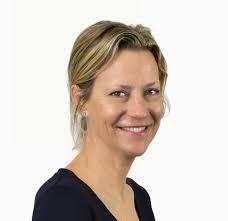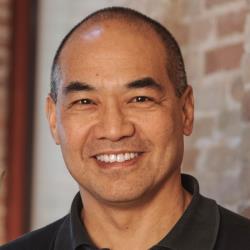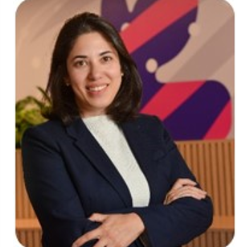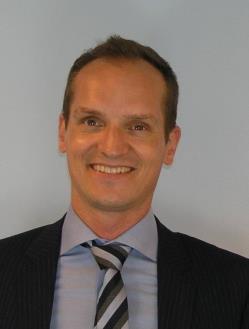Scaling Multistakeholder Partnerships: Connectivity and Education
Giga (ITU,UNICEF), DTC (UNESCO)
Session 205
This panel aims to explore the intersection of connectivity and education, with a focus on leveraging multistakeholder partnerships to drive sustainable development. By examining the efforts of Giga (ITU-UNICEF) in expanding connectivity and the Digital Transformation Collaborative (UNESCO) in advancing digital transformation in education.
Join us for an engaging session that delves into the transformative power of connectivity in education and the pivotal role of collaboration in driving sustainable development goals.
Connectivity and Education: Our panel will lead a deep dive into the critical role of meaningful connectivity in expanding access to quality education. Drawing from initiatives like Giga, we'll explore how bridging the digital divide through infrastructure development and connectivity solutions can unlock learning opportunities, particularly in underserved communities. We'll present a comprehensive system framework for digital transformation in education, emphasizing the need for balanced efforts in coordination, cost, capacity, and content. By advocating for collaborative initiatives like Giga and the DTC, we'll highlight the potential for scalable, system-wide impact on inclusion, quality, and equity in education.
Multistakeholder Partnerships for Impact: We'll emphasize the importance of collaboration in driving sustainable development in education. Through dynamic discussions and real-world examples, we'll showcase how multistakeholder partnerships, including those facilitated by UNESCO, can effectively advance national and global education goals. By dissecting successful partnership models, we'll uncover strategies to harness collective expertise and resources for maximum impact.
Case Studies from a Giga Country: Our session will feature insightful case studies and practical recommendations aimed at inspiring replication and scalability of initiatives that prioritize collaboration between the education and communication sectors. By spotlighting whole-of-government and whole-of-society approaches, we'll showcase holistic strategies for digital transformation in education that promote meaningful connectivity in learning environments.
Don't miss this opportunity to gain valuable insights, exchange ideas, and explore innovative solutions for advancing education through connectivity and collaboration. Join us as we chart a course towards a more inclusive, equitable, and connected future for education worldwide.

Karen has extensive global experience in finance, entrepreneurship and innovation, having worked with start-ups, foundations, international organisations and academic institutions. Karen is the Founder of GV Partners, a research and consulting firm focused on entrepreneurship, innovation and finance. She is also associate fellowship at Saïd Business School.
.jpg?maxwidth=250)
Senior officer with a 20-year track record creating strategic data-informed partnerships, developing alternative revenue and financing flows, and innovative resource mobilization and project funding in the international development, media, and technology sectors.
A seasoned fundraising professional in both the private and public sectors and a qualified and rigorous financial manager having been responsible for $300+ million in investments, funding portfolios, and grant management.
Program level implementation experience in digital transformation and crisis contexts at UNESCO and led teams in the US and LATAM to finance and build early-stage tech companies.
An experienced manager in both private and public organizations – responsible for diverse HQ and field operations teams, in additional to leading cross sectoral agile teams, including internal colleagues as well as coordinating external partner teams for collaboration and innovative financing projects. Thought leader for private sector collaboration in the development sector.
Erin is an MBA graduate of INSEAD, where she researched financial models for digital content and media distribution.

Over a 30-year career, Alex Wong has held leadership roles in global development with a focus on building and implementing new models of public-private collaboration to advance progress on crucial international and industry development challenges. Since 2019, working in the Office of the Director at ITU, he oversees Giga, in partnership with UNICEF, which aims to connect every school to the internet by 2030, and the Partner2Connect Digital Coalition. Prior to ITU, Mr. Wong was president of CG/LA Infrastructure and a key figure at the World Economic Forum, contributing to numerous global initiatives.
Mr. Wong is a frequent speaker at major development events at the United Nations, DFIs and within industry and serves on various non-profit and advisory boards. He has degrees in mechanical engineering and public administration from the University of Toronto and Harvard University, respectively.
.jpg?maxwidth=250)
Honourable Emma Inamutila Theofelus is a young, 28-year-old Namibian woman who serves as a Member of Parliament and the Minister of Information and Communication Technology in the Republic of Namibia.
Before her appointment, Honourable Emma was always policy adjacent and was a Youth Activist around issues of gender, children’s rights, and sustainable development and against youth unemployment. She served as the Deputy Speaker of the Youth Parliament of the Republic of Namibia, Board Member of the National Council of Higher Education and the Junior Mayor of the City of Windhoek amongst other roles.
Born and bred in Windhoek, Namibia, Honourable Emma holds an LLB Honours Degree from the University of Namibia where she served as Secretary General of the Student Union in her final year of study; a diploma in Business Management from Amity University and a diploma in Afrikan Feminism and Gender Studies from the University of South Africa. She is currently pursuing a Master’s Degree in ICT Policy and Regulation at the University of Witwatersrand and is preparing to sit for the bar exams in 2023 with the Board of Legal Education in Namibia.
Honourable Emma is currently awarded the Laureate in the Individual Category of the United Nations Population Award, 2022 and serves as a board member of the Leadership Council of Africa REACH. She has been recognised as the BBC 100 Most Influential Women in the World 2021, named as Avance Media 100 Most Influential Young Africans 2020 & 2021, named as the New African 100 Most influential Africans of 2020, Reputation Poll 100 Most Reputable Africans 2020 and named as the Emerging African Young Leader by the African Leadership Magazine 2022.
Honourable Emma is currently a council member of Nala Feminist Collective where she is championing digital justice on the African continent. She was further nominated for the One Young World Politician of the Year Award 2020 & in 2021. In her current role, Honourable Emma
plans to better communicate the activities and programs of the Government of the Republic of Namibia, create a more digitally literate nation, increase access to the internet among Namibians and assist in preparing the Namibian nation for the 4th Industrial Revolution.

She is graduated in Public Administration from FGV-EAESP and a master's degree in Economic and Political Development from SIPA-Columbia University. At Fundação Telefônica Vivo, Lia has led the Education area, promoting innovative initiatives and the use of technology to support the development of children and teenagers in the context of the 21st century, including programs offered by the Foundation, research development and policy strengthening processes public. Before that, he worked for 15 years in social and multinational organizations in the areas of education, sports and healthy eating in Brazil, Canadá and Switzerland.

Marsha Caddle is a Barbadian economist and public policy strategist who now serves as Barbados' Minister of Industry, Innovation, Science and Technology. As former Minister for Economic Affairs and Investment (2018-2022), she spearheaded Barbados' economic recovery program, significantly boosting foreign reserves and reducing debt through international and domestic restructuring. Caddle led climate finance negotiations for the Alliance of Small Island States in 2021, advocating for redistributed Special Drawing Rights for climate-vulnerable nations. With expertise in climate finance, sustainable development, and gender-inclusive economics, she has held prominent roles at the Caribbean Development Bank and the United Nations Development Programme. Caddle is renowned for her pioneering work in applying gender and macroeconomic policy frameworks to public finance. In 2022, she established The Bold Centre, a think-and-do tank addressing global issues of just transition for developing populations. Additionally, as an elected Member of Parliament, she represents the Barbados House of Assembly.

Mr. Pasquier leads a team which covers both transversal issues such as peace/security, health, environment or digital policy and Geneva-based specialized organizations. Prior to this, he spent four years at the Mission of Switzerland at the UN in NY, where he led the political section and the Security Council team. His diplomatic career includes postings in Berlin and Bern. A political affairs and global governance specialist, Mr. Pasquier held previous positions at the University of Geneva’s and at the Swiss Parliament. He holds MA degrees from the Geneva Graduate Institute and the University of Geneva in political science and arts.
-
 C1. The role of governments and all stakeholders in the promotion of ICTs for development
C1. The role of governments and all stakeholders in the promotion of ICTs for development
-
 C2. Information and communication infrastructure
C2. Information and communication infrastructure
-
 C3. Access to information and knowledge
C3. Access to information and knowledge
-
 Goal 4: Ensure inclusive and equitable quality education and promote lifelong learning opportunities for all
Goal 4: Ensure inclusive and equitable quality education and promote lifelong learning opportunities for all
-
 Goal 5: Achieve gender equality and empower all women and girls
Goal 5: Achieve gender equality and empower all women and girls
-
 Goal 8: Promote inclusive and sustainable economic growth, employment and decent work for all
Goal 8: Promote inclusive and sustainable economic growth, employment and decent work for all
-
 Goal 9: Build resilient infrastructure, promote sustainable industrialization and foster innovation
Goal 9: Build resilient infrastructure, promote sustainable industrialization and foster innovation
-
 Goal 10: Reduce inequality within and among countries
Goal 10: Reduce inequality within and among countries
-
 Goal 11: Make cities inclusive, safe, resilient and sustainable
Goal 11: Make cities inclusive, safe, resilient and sustainable
-
 Goal 17: Revitalize the global partnership for sustainable development
Goal 17: Revitalize the global partnership for sustainable development